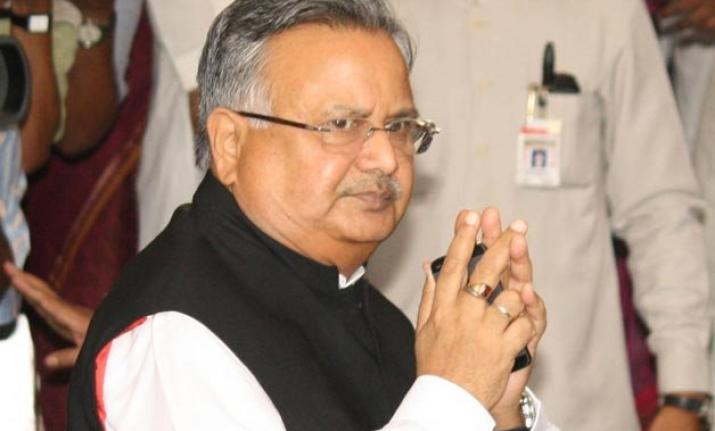The Bhartiya Janata Party (BJP) suffered a humbling defeat in Chhattisgarh and the Congress party made a comeback after 15 years of exile from power. It secured a clear majority, winning 68 seats in the 90-member house. The gap of seats between the BJP and the Congress is vast, and the defeat of the saffron party in the state of Chhattisgarh comes as the most shocking among all the five states. The BJP lost despite having a widely accepted and popular chief minister in Raman Singh. On the other hand, the Congress secured a giant victory despite not declaring a chief ministerial candidate. The Livemint has quoted a Chhattisgarh Congress functionary saying, “Now since we have won a big victory, it can be accepted that we did not have a chief ministerial candidate who was as popular as Raman Singh. Unlike most BJP leaders, including Modi, Raman Singh is a politician with very few angularities which helped him build a non-controversial image.”
The entire campaign of the BJP was built around Raman Singh, who in his 15 years of rule managed to earn an image of credible, visionary, honest, and non-corrupt CM which even his opponents agree to. But still, the BJP lost in a big way in the state. Raman Singh after resigning said, “I take responsibility for this defeat because the poll was contested under my leadership. We will act as a strong Opposition [party] and work for the development of the State.”
There are many factors which contributed to BJP’s rout in the state. The livemint has quoted Raipur-based political commentator and former IAS officer Sushil Trivedi saying, “Raman Singh is the most popular leader in Chhattisgarh by some distance and even Congress leaders accept that in private. He has also done lot of work for the state. Yet, even he could not stand between the severe wave of anti-incumbency against the behaviour of some of his colleagues and the administration. He bore the brunt of that anger which was not personally directed at him.”
Along with the anti-incumbency factor, the intelligence failure within the party also contributed to BJP’s defeat in Chhattisgarh. The BJP failed to realize the severity of the anti-incumbency wave against the party and CM Raman Singh. Also, despite getting negative feedbacks about its MLAs and its ministers, the party decided not to change its candidates.
Ajit Jogi factor didn’t work in the favour of the BJP; in fact, it ended up ruining saffron party’s electoral prospects and benefitting his former party- Congress. Jogi’s exit from the Congress party increased Congress’ acceptability among the OBC voters. According to a One India report, Ajit Jogi-Mayawati alliance did get 9 per cent of the Congress vote in the divisions of Bilaspur, Durg, and Raipur. It resulted in a 9 percent decline in the vote share of the Congress party. Its vote share came down from 40.3 percent to 31 percent. While this huge decline could have sealed the fate of the party in the state considering the fact that it lost the last elections by a margin of less than 0.5 percent.
However, the Congress party gave a good performance in other regions. It got around 8 percent of the BJP’s OBC and Sahu-Kami votes which as a result brought down the BJP’s vote share by nearly 9 percent. In order to grab more OBC votes, the Congress fielded three dominant faces from the community- Bhupesh Baghel, Tamradhwaj Sahu and Charandas Mahant who also are the probable faces for CM post. This is a huge margin in a state like Chhattisgarh where elections have been a tight contest with winning margins being less than 1 per cent traditionally. The exit of Ajit Jogi from the Congress came as a blessing in disguise for the party. Senior Congressmen strongly maintained that Ajit Jogi was the main reason behind party’s loss in the state elections in 2008 and 2013.
Raman Singh also lost the battle of perception although overall mood of the public was in favour of him but not in the favour of his government. His son’s name appeared in the Panama papers and charges of corruption against his cabinet ministers resulted in a serious setback to his clean image. Although the appearance of name is not a definitive proof of being involved in corruption, fake allegations were peddled to an extent that prompted people to look for other options.
One more reason which contributed to the defeat of the BJP is the low-intensity crackdown on Christian Missionaries. This lack of courage to take Hindu issues boldly had cost the party badly in other states also.
Why BJP lost in Chattisgarh .. Tribal areas are fully converted to Christianity it all happened in last 15 years under BJP rule … now tribal are voting and they dont want BJP
—https://t.co/GErbleDCUO— No Conversion (@noconversion) December 12, 2018
The effect of the mandate will be felt in the coming days in the winter session of parliament as well as outside the parliament. The opposition will be fiercer in its attack against the BJP. The victory in Chhattisgarh, Rajasthan, and Madhya Pradesh has acted like an elixir for the opposition, and it’s also a wakeup call for the BJP.
